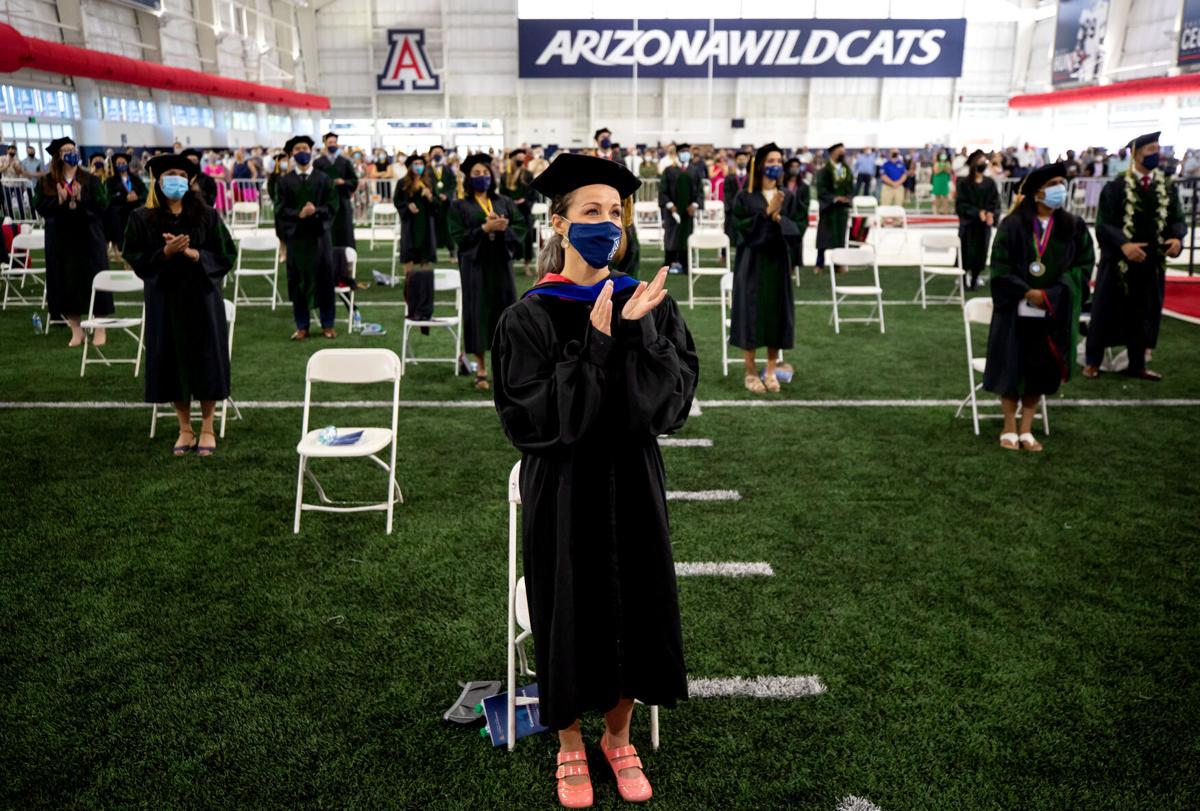
PHOENIX — Gov. Doug Ducey has forbidden public universities and community colleges from requiring that students and staffers wear masks and get tested regularly for COVID-19.
In an executive order Tuesday, the governor specifically lashed out at the policy announced by Arizona State University requiring that students be vaccinated before returning to class in the fall.
That policy is not absolute. But Ducey pointed out it says those who are not inoculated or choose not to share that information “will be subject to invasive restrictions such as daily health checks, twice weekly testing and mandated mask wearing.’’
That, the governor said, is unacceptable.
He acknowledged that COVID-19 is “highly contagious.” But he said that it does not have the kind of transmission characteristics that would meet requirements for mandated vaccines.
Holly Jensen at the University of Arizona said her school has a virtually identical policy, allowing non-vaccinated students on campus but only if they wear masks and get tested regularly.
Northern Arizona University, while having no specific policy on vaccinations, requires that everyone on campus wear a mask and maintain at least 6 feet of physical distancing.
But none of the schools is planning to contest Ducey’s edict.
“We will comply with the governor’s executive order and continue to monitor our public health conditions to help ensure the health and well-being of our students, faculty and staff,’’ said Pam Scott, a UA vice president.
ASU also won’t fight the order despite comments earlier in the day by President Michael Crow defending the school’s policy as providing freedom of choice.
The order also extends to all community colleges.
“The vaccine works,” Ducey said in a Twitter post.
“But the vaccine is a choice,” calling the policy “social engineering at its worst,” he continued. “Health policy should be based on science, not virtue signaling.”
That’s the same verbiage being used by some elements of the Republican Party to eliminate any kinds of mask mandates. And it isn’t Ducey’s first foray into the battle.

In March, he barred local governments from imposing mask mandates except in public building and on mass transit.
“We need to make our public universities available for students to return to learning,’’ he continued. “They have already missed out on too much learning.”
It was Sen. T.J. Shope, R-Coolidge, an ASU graduate himself, who first raised the issue on Monday.
He cited a note to new students for the fall semester from Joanne Vogel, vice president of student services. That laid out the requirement for unvaccinated students or those who don’t share inoculation information to get tested twice a week, submit a daily health check and wear face covers in all indoor and outdoor spaces on ASU campuses.
Shope brushed aside questions of whether young people, even though they’re less likely to get seriously ill, can still be carriers who can spread the disease to those who are more vulnerable.
“I think the science is still out,” he said.
But ASU spokeswoman Katie Paquet said the idea of halting the spread — and not just among other students and staffers — was precisely one of the reasons the university adopted the policy. She said there is a belief that the school needs to protect the community at large.
“We know that our students are not confined to the borders of ASU,” she continued. “They live and they go out into the broader community so we wanted to make sure that we’re taking steps to protect the unvaccinated.”
It requires not just testing but also says that non-vaccinated individuals must wear face coverings in all classrooms and other group instructional settings. Masks also are requiring outdoor “where continuous physical distancing of at least six feet is difficult or impossible to maintain.’’
“We don’t test for many things that are contagious, especially in a dorm setting,’’ he said.
“I’m not sure where we draw the line at on this,’’ Shope continued. “And I think that’s what the concern is for me, especially on a twice-weekly (basis).’’
There are exceptions in Ducey’s order.
Students who are participating in clinical studies at hospitals, nursing homes and similar facilities can be required to provide proof of vaccination and be subject to regular screening.
